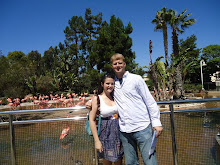1.)
Myers, W. (2001). Bad Boy. New York: HarperCollins Publishers, 214 pp.
Memoir, African American Author, Coming of Age,
Author has won: 1994 ALA Margaret A. Edwards Award for lifetime achievement in writing for young adults, 1994 ALAN Award for outstanding contributions to the field of young adult literature.
2.)
Bad Boy is a story of a young man finding his path in life. Strong and smart, Walter struggles to discover is place in a society that does not value his intelligence. Growing up in Harlem during the 1940’s and 1950’s, Myers relates a tale of the struggle of a young black man who wants to do more with his life than work in the garment district. Myers is an avid reader and writer and a relatively good basketball player with a quick temper. When he joins the Special Progress class he realizes for the first time that he has an opportunity to become something more. However, as he begins Stuyvesant High, Myers begins to realize that the opportunities that await many of his white classmates do not await him. This book is a reflection on how Myers coped with that realization and how he was a “bad boy.”
3.)
Myers delivers an eloquent memoir about how he became the writer he is today. He shows how he struggled with poverty, racism, and a general lack of opportunity. While he adoptive mother and father play an important role in his development, the strongest character in the novel is Walter. His insights belong to those of a matured adult who is proud of struggles to become accomplished. To a young reader, this book may make all the petty worries in the life of a teenager seem small. Walter’s father can not read, Walter is constantly under the threat of being caught by a gang, and reminded that his family will not be able to afford to send him to college if he could get accepted as an African-American. In this book, Myers addresses the complicated issues of racism and poverty with the experience of a talented children’s author.
4.)
I would select this book for a possible read aloud. Also, if I had a group of students who had read and enjoyed Myer’s other books (Monster) I would suggest this book for a literature circle- knowing that the reading level is higher and I would have to provide them with guidance. Also, throughout the book, Myers drops the names of some books he liked when he was reading. I took some ideas for future reading from him and I would hope my students would too.
5.)
This book is at a higher level than many of Myer’s other works that classmates have reviewed. I would recommend this book to 8th grade and up. I believe that older students who have not read anything by Myers in a while can still get a lot out of this particular book.
6.)
As I was reading the book, I kept thinking of Anne Petry’s The Street. I was reminded of how everything seems to come down on Lutie and then she finally exploded and kills someone with a candlestick. Well, Walter did not explode like Lutie- he acted out consistently. That is why he was a “bad boy.” I kept this train of thought going until Myers said he read The Street and hated it. Yes, there are many behaviors in this book that I would not want my students to mirror but that fact would not keep me from suggesting it to anyone. Yes, Walter skips school but he skips school to sit in Central Park and read. If I grew up in Harlem, I probably would have done the same thing. At the end of the book I was proud of him for his success (kind of jealous actually). I would recommend this to adults for pleasure reading as well.
Sunday, July 27, 2008
Subscribe to:
Post Comments (Atom)

4 comments:
I'm really excited to read this book. I find memoirs which provide honest and sincere reflections on real life struggles are extremely powerful works. Additionally, students respond to this type of literature because they can tell its not bullshitting. The relevance and excitement I have observed in class concerning Myer's writing indicates that your classroom uses for the book would be more than appropriate. It seems that young readers crave information about the authors they enjoy. Thanks for the review, and I'm looking forward to stealing this book from you.
Brian
Not only do I think that Myer's honesty and story would be compelling for young black men and women, but for EVERYONE of EVERY color. He has really put himself out there, hasn't he? And, I just found out the other day, he's a heckuva poet, too! You just can't beat frankness when it comes to appealing to adolescents. Like Brian points out, they can sniff out the b.s. better than anyone. And, jeez, look how everybody's joined the cult of celebrity when it comes to models, tv actors, and soft drinks? Why not let our kids meet authors in their own words -- maybe some of them would actually prove to be worthy of a little cult following. I'd love to teach this book as well as MONSTER and also LOVE THAT DOG (by Sharon Creech, in which a young poet mails Myers an invitation to his school); and then, have my students write letter s to Myers. I can't wait for the panel discussion about WDM. Thanks, Steph for the great review.
And, Grace? I just called you Steph in that last sentence. Sorry. Too many blogs . . .
Okay..now, here's an important question I have after reading your blog: why were you not on the Myers panel?? Did you find it convenient to somehow skip out on your duty? Anyways, the book sounds interesting, and I'm usually not one for a lot of nonfiction. Good stuff.
Post a Comment